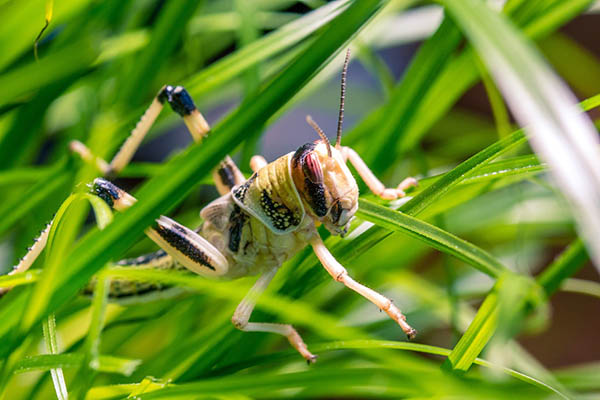
As country struggles to overcome coronavirus, observers warn inaction on locust swarms will result in food shortages
Farmers across Pakistan have, since mid-2019, been voicing alarm over the worst plague of locusts to hit crops in decades, with the insects having already caused billions of dollars in damages and raised fears of sustained food shortages in the months to come.
“The worst that we have ever seen, ever, in our whole life,” Mir Gul Muhammad, a farmer in Balochistan province, told Britain’s Guardian newspaper. He said the insects had already destroyed his entire cotton crop, and had also severely damaged crops of basic essentials such as onions and tomatoes. “It will take years to recover from this loss,” he added.
Last year, unnaturally heavy rains led to an explosive growth of the locust population, with swarms affecting crops in India, Pakistan, Iran, and a number of African countries. Experts have warned that the second wave, currently approaching South Asia from Iran, is 20 times bigger.
Reacting to the threat, Prime Minister Imran Khan in January, declared a national emergency over the locust threat. He promised that agriculture was a top priority of the government, and all possible steps would be taken to protect crops from any danger “with a special focus on locust attacks.”
Despite this, say local farmers and provincial lawmakers from Sindh, little has been done to curb the threat posed to food security by the insects.
The locust swarms have hit Sindh particularly hard, due to its proximity to Iran, which has served as the gateway for the plague reaching Pakistan.
Inadequate measures
Pakistan Peoples Party Chairman Bilawal Bhutto-Zardari, which rules in Sindh province, has accused the federal government led by Khan’s Pakistan Tehreek-e-Insaf for failing to take adequate measures to protect the country’s farmers from the threat of locusts.
In a statement issued on Wednesday, he said the federal government had been repeatedly warned of the threat posed by locust attacks to the economy, but the center had ignored it. He warned that the damaged crops posed a dangerous threat to the national economy, which is already reeling due to the coronavirus pandemic.
Prime Minister Imran Khan has announced a series of relaxations to lockdowns imposed to curb the spread of coronavirus, claiming the losses to the economy could not be sustained by “impoverished Pakistan.” Apart from the national emergency to combat the locusts, whose efficacy is under question, he has not yet announced similar policy measures to combat the locust threat.
Ismail Rahoo, state minister of agriculture for Sindh, told The Guardian that the locusts were converging on Pakistan from three sides. “The locusts and their eggs have now covered 50,000 square kilometers of farmland,” he said, adding experts had predicted more than 5 million hectares would be infested.
“They are not just attacking Sindh province, but also the agricultural areas of Punjab and Balochistan,” he added.
According to Rahoo, the federal government has ignored several requests to spray pesticide over crops in Sindh, claiming the province lacks the funds necessary to undertake this exercise without the center’s support.
NDMA to the rescue?
Federal Minister for National Food Security Fakhar Imam on Wednesday said the prime minister had directed the National Disaster Management Authority (NDMA) to eliminate locusts from the country.
Terming the plague of locust “another pandemic,” he said over 90,000 Army personnel had been deployed to protect crops through fumigation campaigns. He claimed that in the past locust swarms would invade Pakistan and then leave for other states, but this year was different. “They have not gone back,” he said.
According to Imam, China has sent a 10-member delegation to Pakistan to offer consultation on how to eliminate locusts from the country. He said Beijing had also provided Islamabad with 332,000 liters of pesticides, which would soon be sprayed over affected areas.
Economic impact
Locusts move in swarms of up to 50 million, can travel 90 miles a day, and lay as many as 1,000 eggs per square meter of land. Pakistan was hit with a swarm of similar magnitude in 1993, nearly 30 years ago.
According to the U.N.’s Food and Agriculture Organization, Pakistan is estimated to incur losses of about Rs. 200 billion to just three key crops based on about 15 percent damage levels. For other crops, with 25 percent damage, losses will be about Rs. 400 billion.
This, note observers, could be economically devastating, as Pakistan’s agriculture still accounts for 20 percent of GDP, and 65 percent of the population lives and works in agricultural areas. The chief concern, as voiced by farmers, is that they have been left to fend for themselves by the government, and thousands will go hungry as the damaged crops result in reduced outputs.
